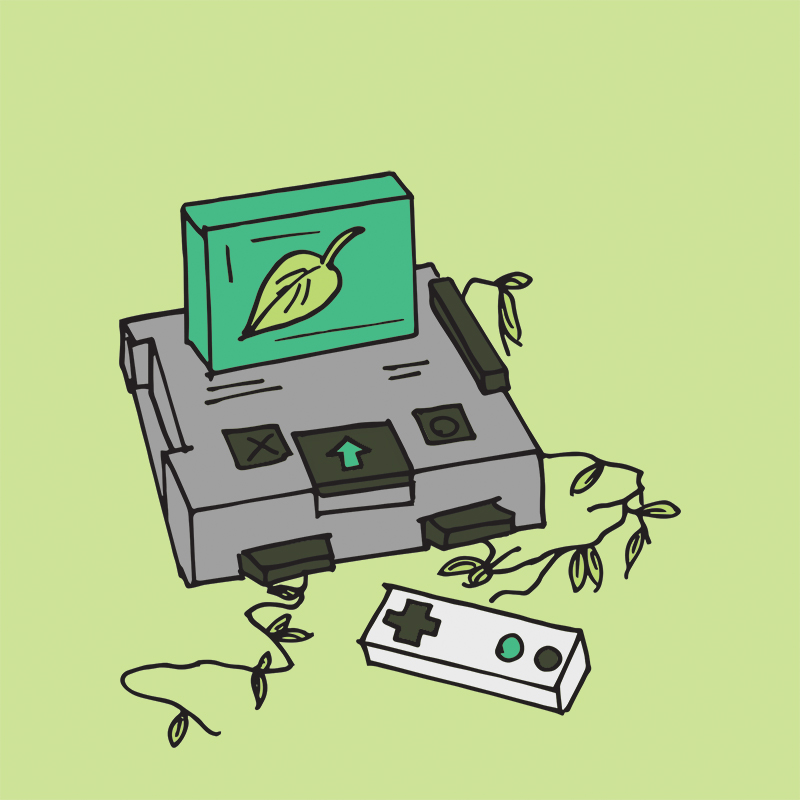Game Curious Montreal aims to break stereotypes about dominant gaming culture
The purpose of Game Curious Montreal’s events is to “build bridges between different communities … and create a space for people who feel excluded or marginalized in dominant gaming culture,” according to Carolyn Jong, a collective member of the organization.
Attendees of the latest event, held at Café Aquin on Sunday, Jan. 28., played video games and munched on snacks, but the conversation quickly became a discussion about how the games they played addressed real-life struggles, such as oil mining and the loss of native languages due to colonialism.
In the video game Idle No More: Blockade, for example, players fight stereotypes about Indigenous people rather than physical monsters. “It’s empowering because it shows counter-arguments and ways to push back against those stereotypes,” Jong said. “[The game is] about gathering people to fight back against a corporation that’s trying to put a pipeline through Indigenous lands. I think that’s a good model and message to be shown through games.”
Game Curious Montreal is a working group of the Quebec Public Interest Research Group (QPIRG) at Concordia, a resource centre for student and community research that promotes awareness of grassroots social and environmental activism, according to the QPIRG’s website.
Gersande La Flèche, another collective member, pointed out that Game Curious Montreal events also aim to eradicate stereotypes about gamers. “We are trying to reach out to people who don’t consider themselves ‘gamers’. We want people who don’t know what video games can be or should be,” La Flèche said, emphasizing the importance of keeping an open mind. “Even if you think you’re bad at games, you’re probably not,” they said. “You just probably haven’t found the game that’s made for you.”
Similarly, Jong advises students and gamers not to give up if they feel constrained or excluded from the dominant gaming culture. “You’re not alone. There are lots of other people who probably have felt that way,” she said. “It’s the culture that’s trying to enforce the boundaries. There are a lot of different kinds of skills when it comes to games. Being good at games doesn’t matter.”
La Flèche said they believe supporting video games about resistance is a concrete way to fight back against colonialism. “The game My Grandmother’s Lingo is about [a native language] that colonialism was trying to eradicate,” they explained. “Sharing a game about your grandmother’s language and sharing words is a step of resistance as well as bringing awareness to the issue.”
However, La Flèche encouraged people to show support for Indigenous communities in the real world as well by volunteering and making donations to Indigenous resource centres and homeless shelters. “Supporting murdered and missing Indigenous women is also a big one,” they added. “[We have] women’s marches that draw so many people, so why aren’t we drawing the same amount of people to marches for murdered and missing Indigenous women?”
For Moustafa Chamli, another Game Curious Montreal member, it’s important to support video games that fight against oppression by giving representation to minority groups. “In video games, you rarely get the First Nations or black person perspective,” he said. “The barometre of standard media has been set as cis-hetero-white-male, so any differing view becomes anathema or too different.”
Chamli emphasized the necessity of giving Indigenous people space in society and the gaming world. “They have things to say. They have an anger and sadness that need to be expressed,” he said. “Understand that other cultures deserve to exist and help them grow, not by taking their space but by giving them the space that they should be having.”
Graphic by Zeze Le Lin




